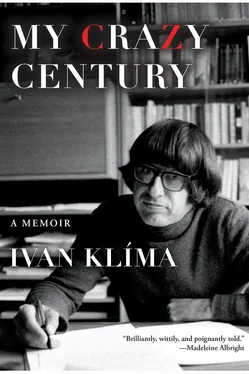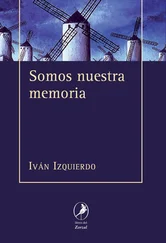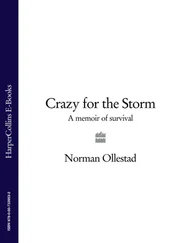Most of the important political prisoners were interrogated at the Ruzyně prison. The head of the interrogators there was Bohumil Doubek, who wrote about the methods employed: Therefore, it was determined that if there was supposed to be a certain result in the investigation, it [ the interrogation ] must be conducted at least fourteen to sixteen hours a day. The prisoner was allowed to rest from ten in the evening till six in the morning. If he arrives at his cell at midnight, he won’t fall asleep because he’s still agitated from the interrogation, and in the morning he must get up at six. Moreover, he can be woken at night by the guards. Because he has to stand during the interrogation, he is then physically and mentally exhausted, and it is not difficult for the interrogators to acquire the incriminating evidence because the accused is more acquiescent. The reality was even more drastic because the interrogated often had to walk the entire night in their cells; their feet would swell, and they often lost control over their own words owing to exhaustion.
The interrogations, conducted under the guidance of Soviet advisers, had only one goal: to compel the prisoner to confess to the accusation that had been prepared ahead of time: treason, espionage, sabotage, or another capital offense.
People broken by long and relentless torture were told repeatedly that they had no hope but to confess — then considered a mitigating circumstance — and admit to the most absurd crimes. The quickly “trained” judges and prosecutors, together with those who were willing to fulfill unquestioningly the orders of the new government, then sentenced the tortured prisoner to a long prison sentence or to death.
The investigators knew that the confessions had been coerced, that they lacked any real basis or were derived only from other confessions that had also been made under duress. Nevertheless, entire units of interrogators, without apparent hesitation, employed these methods, perfected during the Middle Ages. Just as in the Soviet Union, just as in Nazi Germany, the political police acted outrageously, not only with the awareness of the ruling power but also upon its orders, and the cynicism with which these deeds were carried out was stunning.
Primarily, the organization [CPC] exhorted all of its members to display perseverance during interrogation and, just like the leadership of the investigation and the leadership of the ministry, support the view that anyone who was arrested was an enemy of the state and must be convicted no matter what. Therefore, they were to assist the diligence and persistence of the investigative organs. For example, the organization also supported and oversaw a competition for the best interrogation time, which was rewarded with book prizes for those who achieved the best average interrogation times.
All this was made possible because the authorities abolished all basic civil rights; they raised repressive organs above the law, above judicial power. They adjudicated the status of those who had to take even the most absurd accusations seriously.
Over several years, almost 200,000 citizens died in concentration camps; 178 political prisoners were executed by Communists. State Security provided the material for the trials, which, like the Soviet trials, had nothing in common with actual judicial processes. State Security also determined the judgments and the punishment, although, especially in the case of the death penalty for prominent defendants, the recommendation had to be approved by the highest organ of the party.
At the same time, the secret police in all dictatorships is an essential component of power. After the Communist coup, the small unit of the National Security Corps became the most important security unit, which in the 1950s had five thousand permanent workers and employed the services of countless agents, petty informers, and denouncers. Even though State Security forces were also in charge of espionage, from the beginning their primary function, as determined by Lenin, was battling the internal enemy. Just after the coup, it was mostly democratic politicians, Western resistance fighters, and those with an inappropriate class origin (there were all sorts of those in our society) who were persecuted. But soon prominent Communists also were being victimized.
Although, after the death of Stalin, the most brutal repressions ceased, the secret State Security became more important for the perpetuation of totalitarian power. Fiendish terror was replaced by agents who monitored, overheard, and admonished. It was necessary to ensure participation in elections, rallies, and brigades; to know what people said in private, what kind of jokes they told; to ensure that legal organizations did not become cells of resistance (as happened in artistic circles in the 1960s); to know if any illegal organizations were being established, if anyone was listening to “seditious” foreign broadcasts, if people were meeting with foreigners or even foreign diplomats, if they were exchanging “harmful” literature. Even after the Soviet invasion in 1968, State Security did not commit murder; instead it compiled long lists of unreliable citizens who were not allowed to go abroad, whose children were not allowed to study. No one from their families could be accepted into any qualified position, especially not one of leadership. It was necessary, at least on occasion, to monitor them, acquire informers from their neighborhood, photograph them, repeatedly summon them for interrogation, search their apartments (sometimes in their presence, sometimes in their absence), install listening devices. State Security employees wrote anonymous, threatening letters and collected incriminating material that could be used in a political trial. Active opponents had their driver’s licenses revoked and their phones disconnected. At times, State Security bundled someone into an automobile, drove him out to a distant forest, threatened him, and dumped him as far as possible from any road or inhabited place. (The musicologist Ivan Medek, for example, was beaten unconscious in a forest and thrown into a ditch.)
The courts sometimes pretended to be real courts, and in some isolated cases they were not governed by the investigators. The fear of unfathomable repression combined with torture and the possible loss of life was lessening. The task of State Security was now to keep the citizens aware that if they refrained from any manifestations of resistance or protest, they could live in peace. He who protested, on the other hand, had only himself to blame for the loss of this peace.
In its own way, this work was more demanding than outright terror. It came as no surprise, therefore, that when State Security was dissolved after the fall of Communism, it had more than thirteen thousand employees, almost twice as many as during the years of Gottwald’s terror.
The dictionary definition of “elite” refers to the French word élite, which means select, the best. The elite of society are individuals exceptional in education and morals; in the military, the bravest . It is worth noting that the definition, stemming back to the middle of the nineteenth century, mentions education, morals, and bravery, not ancestry or property, both of which at that time were seen as entitling one to be considered a member of society’s elite.
Of course, the concept of the elite was significantly influenced here by our National Revival. The property owners and the nobility belonged primarily to the German-speaking layers of society because revivalist thinkers, or simply Czech intellectuals, emphasized precisely these characteristics. However, in the Czech lands, just as in France at the time, those whom we called the cultural or spiritual elite enjoyed greater respect. Their members had neither power nor property but rather admiration and influence upon the behavior and thought of the people. (Let us recall the influence of Émile Zola on liberating the unjustly accused Alfred Dreyfus or Masaryk’s participation in the battle against the apologists for ritual murder in the case of Hilsner.)
Читать дальше












